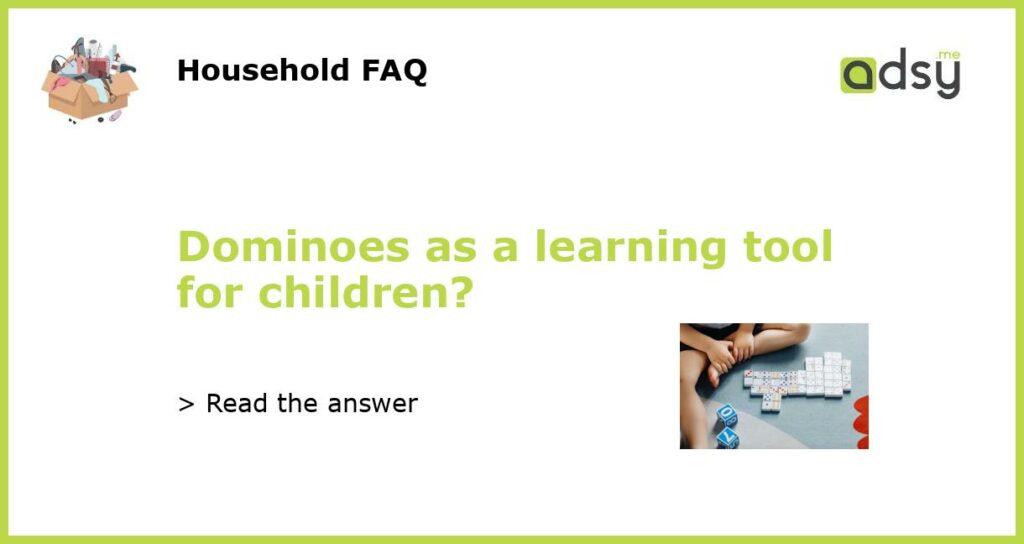Dominoes as a Learning Tool for Children
Dominoes have been a popular game and toy for centuries, but did you know that they can also be a valuable learning tool for children? It may surprise you to learn that dominoes offer a range of educational benefits that can support a child’s development in various ways. From improving mathematical skills to enhancing critical thinking abilities, let’s explore how dominoes can be used as a learning tool for children.
Enhancing Mathematical Skills
One of the most significant benefits of using dominoes as a learning tool is the enhancement of mathematical skills. Playing with dominoes helps children develop basic numeracy skills, such as counting, adding, and subtracting. The dots on each domino are ideal for teaching children the concept of quantity and number recognition.
Children can practice addition and subtraction by lining up and matching the numbers on different dominoes. They can also learn basic multiplication concepts by exploring how different combinations of dots on the dominoes equal a specific number. These hands-on activities make learning math more enjoyable and engaging for young learners.
Developing Problem-Solving and Critical Thinking Skills
Dominoes offer an excellent opportunity for children to develop problem-solving and critical thinking skills. As children play with dominoes, they need to consider the different possibilities and strategize how to create longer chains or topple down multiple dominoes in a specific pattern.
This type of thinking requires logical reasoning, planning, and prediction skills. Children learn to analyze the situation, think ahead, and make decisions based on cause and effect. These skills are vital for problem-solving not only in mathematics but also in everyday life situations, making dominoes an ideal tool for developing cognitive abilities.
Promoting Social Skills and Communication
Playing dominoes can be a social activity, whether it’s with family members, friends, or classmates. This game encourages interaction and promotes social skills development in children. When playing with others, children learn how to take turns, follow rules, and engage in friendly competition.
Through playing dominoes, children also improve their communication skills. They learn to express themselves, convey their thoughts, and negotiate with others. This type of social interaction is essential for developing strong interpersonal skills which will benefit children in all areas of their lives.
Fostering Creativity and Imagination
Dominoes can be used not only for structured play but also for open-ended, imaginative play. Children can stack the dominoes creatively to build various structures or create unique patterns. This type of play fosters creativity, imagination, and spatial awareness.
By experimenting with different formations, children learn about symmetry, balance, and problem-solving in a creative way. This imaginative play allows children to explore and discover new possibilities, nurturing their creative thinking and encouraging them to think outside the box.
Enhancing Fine Motor Skills
Playing with dominoes improves fine motor skills in children. As they handle the small domino tiles, children develop hand-eye coordination, finger dexterity, and control. They practice precise movements as they line up the dominoes and carefully place them in a specific position.
These fine motor skills are not only essential for playing dominoes but also for various other activities, such as writing, drawing, and tying shoelaces. By engaging in domino play, children strengthen their hand muscles, improve their coordination, and enhance their overall motor skills.
In conclusion, dominoes can be a fantastic learning tool for children. They enhance mathematical skills, develop problem-solving abilities, promote social skills and communication, foster creativity and imagination, and enhance fine motor skills. So, the next time you see a set of dominoes, consider using them as a fun and educational tool to support your child’s learning and development.






